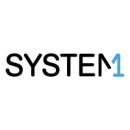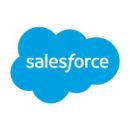By helping companies uncover hidden patterns and trends, big data is used in nearly every industry to plan future products, services and more. And this field has yet to reach its full potential, with the global big data market expected to more than double in size and exceed $510 billion between 2024 and 2032.
These companies are using big data to shape industries from marketing to cybersecurity and much more.
Big Data Examples to Know
- Marketing: Forecast customer behavior and product strategies.
- Transportation: Assist in GPS navigation, traffic and weather alerts.
- Government and public administration: Track tax, defense and public health data.
- Business: Streamline management operations and optimize costs.
- Healthcare: Access medical records and accelerate treatment development.
- Cybersecurity: Detect system vulnerabilities and cyber threats.
Big Data Examples in Marketing
Big data and marketing go hand-in-hand, as businesses harness consumer information to forecast market trends, buyer habits and other company behaviors. All of this helps businesses determine what products and services to prioritize.
Since its founding in 1994, Amazon has collected reams of information on what millions of people buy, where those purchases are delivered and which credit cards they use. In recent years, Amazon has begun offering more and more companies — including marketing companies — access to its self-service ad portal, where they can buy ad campaigns and target them to ultra-specific demographics, including past purchasers.
AnthologyAI empowers consumers to take control of their personal data and earn money from it using the company’s mobile app. Simultaneously, the company offers businesses access to a wealth of consumer behavioral data through its intelligent Knowledge Graph, which is compiled with the explicit consent of users. AnthologyAI collects over 100 million data points daily, covering various aspects such as media consumption and financial transactions, enabling enterprises to gain valuable insights while maintaining consumer privacy.
System1 develops software to support streamlined, effective digital marketing operations. The company uses AI, machine learning and data science to power its response acquisition marketing platform, known as RAMP, which integrates with various channels like search, e-commerce and video. Brands can then engage high-intent customers at the right time.
Centerfield analyzes customer data to uncover new insights into customer behavior, which influences the marketing and sales techniques it recommends to clients. The company engages over 200 million shoppers with its newsletters, brands and SMS messages and uses this information to discover new customers that fit the same patterns as existing customers.
With insight help from big data, DISQO offers products for measuring brand and customer experience. The company specializes in research and marketing lift efforts, providing API and optimization software for tracking key performance and outcome metrics. DISQO’s platform monitors ads across different channels while providing metrics on each ad, giving marketers a more holistic view of their ad campaigns.
Big Data Examples in Transportation
Navigation apps and databases rely on big data analytics to get users safely to their destinations. Insights into routes, travel time and traffic are pulled from several data points and provide a look at travel conditions and vehicle demands in real time.
As a rideshare company, Uber monitors its data to predict spikes in demand and variations in driver availability. That information allows the company to set the proper pricing of rides and provide incentives to drivers so the necessary number of vehicles are available to keep up with demand. Data analysis also forms the basis of Uber’s estimated times of arrival predictions, which goes a long way toward fulfilling customer satisfaction.
GE’s Flight Efficiency Services, adopted in 2015 by Southwest Airlines and used by airlines worldwide, can optimize fuel use, safety and more by analyzing the massive volumes of data airplanes generate. GE’s scalable aviation analytics takes it all in, crunching numbers on fuel efficiency, weather conditions, and passenger and cargo weights.
FourKites’ platform uses GPS and a host of other location data sources to track packages in real time, whether they’re crossing oceans or traveling by rail. A predictive algorithm then factors in data on traffic, weather and other external factors to calculate the estimated times of arrival for packages, so FourKites clients can give customers advance warning about delays and early deliveries — while also avoiding fees.
HERE Technologies leverages location data in several ways, most notably in the HD Live Map, which feeds self-driving cars the layered, location-specific data they need. The map pinpoints lane boundaries, senses a car’s surroundings and can see around corners in a way the human eye can’t, thanks to data from intelligent sensors. And a perpetual stream of intel from fleets of roaming vehicles helps the map warn drivers about lane closures miles away.
Big Data Examples in Government
Big data helps governments compile and provide insights into suggested legislation, financial procedures and local crisis data, giving authorities an idea of where to best delegate resources.
Zebra Technologies’ cloud and software solutions enable governments to manage digital assets. Governments can then keep track of personnel deployed to areas in real time, make sure all equipment is accounted for and automate processes to make operations more efficient. On the local level, governments can use Zebra Technologies’ software to store information on infrastructure and building codes, upholding public safety standards.
Qlik has designed SaaS platforms specifically for the government and public sectors. With Qlik’s cloud products, governments can organize data into data warehouses and data lakes, capture real-time data movement and quickly develop data analytics and reports. These abilities allow governments to offer speedy digital services to the general public, support collaboration between departments and promote accountability with transparent data methods.
RapidSOS funnels emergency-relevant data to first responders out on 911 calls. Thanks to partnerships with Apple, Android providers and apps like Uber, the company can pull relevant data from patients’ phones and wearables in crisis situations. Free to public safety offices, Clearinghouse integrates into pre-existing call-taking and dispatch channels so data reaches EMTs more reliably and securely.
Big Data Examples in Business
Succeeding in business means companies have to keep track of multiple moving parts, and big data helps manage it all. Using data analytics, professionals can follow real-time revenue information, customer demands and managerial tasks to not only run their organization but also continually optimize it.
Salesforce offers a customer relationship management platform that integrates data from various facets of a business — like marketing, sales and services — into a comprehensive, single-screen overview. The platform’s analytics provide automatic AI-informed insights and predictions on metrics like sales and customer churn. Users can also connect Salesforce with outside data management tools rather than toggling between multiple windows.
Genius Sports specializes in sports data analysis with solutions that it offers to sports teams and leagues. It has an AI-powered video platform that helps coaches analyze gameplay performance. The company says it has partners and customers in over 150 countries.
Big data impacts not only which series Netflix invests in, but how those series are presented to subscribers. Viewing histories, including the points at which users hit pause in any given show, reportedly influence everything from the thumbnails that appear on their homepages to the contents of the “Popular on Netflix” section.
DataGrail offers an enterprise platform intended to protect brands and foster customer trust through streamlined data privacy management solutions. For example, businesses can use DataGrail’s automated data mapping capabilities to inventory where sensitive data is stored across their tech stacks. DataGrail also has tools for customizing the consent experience so it contributes to a positive customer journey.
Spokeo describes itself as “a people intelligence service” providing users with a search engine for finding information about and connecting with people. The data on Spokeo’s site comes from billions of records, including social media profiles, property records and court records. Spokeo also offers enterprise solutions, giving businesses access to important data that can support use cases like fraud investigations and debt collections.
PureSpectrum has built a marketplace platform for conducting market research to inform business decisions. Its solutions allow researchers to efficiently create and manage surveys, target specific respondents, access comprehensive data on each question and easily export data for presentations and reports.
Monte Carlo’s data observability platform offers solutions for identifying data quality issues so they can be quickly resolved, cutting down on potential downtime. Businesses across industries such as retail, life sciences and financial services use Monte Carlo’s technology to ensure data reliability.
LoanStreet offers a digital platform for financial institutions like banks, credit unions and direct lenders to manage and trade loans as assets. The platform includes features such as a digital loan marketplace, automated loan reporting, loan servicing and analytics on loan performance — all accessible through a single dashboard.
Arity is a data and analytics firm that works in the automotive insurance space, sourcing data from nearly 175 million connected devices. Operating independently under the umbrella of the Allstate Insurance Corporation, it uses AI to analyze driver behavior on behalf of local governments and insurance providers, who then use its data and insights to make pricing and policy decisions.
Enigma’s big data analysis platform takes vast data sets of information ranging from merchant transactions to firmographic information. It then returns insights on private businesses, guiding clients’ B2B decisions. These data-driven insights are more accurate than previous methods of investigation in areas like financial health, for example. As a result, only applications that are likely to be approved will be sent forward in the application process, which can lead to increased approval rates on loans.
Forge provides tech, data and marketplace services for the private securities market. Private securities, which include privately traded equities, fractional loans and derivatives, are traded between individuals rather than on an exchange the way publicly traded stocks are. The Forge Intelligence app uses big data to allow users to see real-time trading activity and pricing information in the private market.
Adyen is a global fintech solution that enables businesses like Microsoft, Uber, Spotify and L’Oréal to handle online, mobile and in-store transactions, alongside risk management, from a unified platform. Adyen’s platform also delivers real-time data on customer payment behavior across channels, so businesses can further personalize the customer experience.
Nasuni is a hybrid cloud storage solution designed to support business growth by offering scalability and built-in security through a cloud-native architecture. Its platform helps eliminate data silos and simplify management, without requiring changes to existing workflows. Customers can manage all their data while still storing it in multiple locations, including public clouds like Google Cloud Storage and Microsoft Azure.
Redgate aims to reduce errors and improve productivity for businesses of all sizes in most industries. It creates end-to-end software solutions for administration and database development. The company boasts that its users spend 83 percent less time on database deployments.
Since its 2017 founding, InCommodities has been working to develop technology that provides insights and automates workflows to power optimized energy trading across global markets. The company applies real-time data in combination with predictive algorithms to deliver analytics solutions that help inform trading decisions.
Big Data Examples in Healthcare
When it comes to medical cases, healthcare professionals may use big data to determine the best treatment. Patterns and insights can be drawn from millions of patient data records, which guide healthcare workers in providing the most relevant remedies for patients and how to best advance drug development.
Kalderos builds solutions to support compliant drug discount programs. Its platform brings together data from multiple sources to identify and resolve noncompliance and improve transparency and collaboration among stakeholders. Kalderos says its technology has identified more than $1 billion in noncompliance so that healthcare organizations can avoid revenue losses and focus on serving patients.
Tempus’ tablet-based tool has made file cabinets of medical records portable and accessible in real time. Designed to inform physicians’ decisions during appointments, Tempus trawls huge digital archives of clinical notes, genomic data, radiology scans and more to turn out data-driven treatment recommendations. These recommendations are also based on data from past patients with similar demographic traits, genetic profiles and cancer types.
SOPHiA GENETICS provides data solutions for healthcare professionals based on big data metrics, with specializations in oncology, inherited diseases and biopharmacy. The company’s SOPHiA DDM platform provides multimodal insights from clinical, biological, genomics and radiomics data sets for screening and diagnosis purposes.
Garner Health gives users access to data-powered search tools that patients can use to connect with doctors. The app provides users with a list of local doctors based on each user’s medical needs. Users can also consider details about possible providers, including appointment availability and patient reviews.
Big Data Examples in Cybersecurity
As data security concerns persist, big data analytics are used behind the scenes to protect customers. By reviewing multiple web patterns at once, big data can help identify unusual user behavior or online traffic and defend against cyber attacks before they even start.
Exabeam analyzes data from companies that have suffered attacks to help organizations build models of what common attacks look like and how to detect and deter them before they are successful. Clients can further upgrade their security approach with Exabeam’s security operations platform, which applies AI and automation to simplify workflows.
Own is a cloud-based platform for data security, backup, compliance, archiving and sandbox seeding. Using big data insights, the company’s software provides automated backups and security risk metrics for Salesforce, Microsoft and ServiceNow data environments. Own has partnered with AWS, nCino and Veeva to provide data protection and compliance services for businesses across the country.
Arista’s Awake Security platform works like the human brain. Sensors scan data where it’s stored, whether in the cloud or embedded in an IoT device. Like nerves relaying information back to the brain, Awake’s sensors port key findings back to the Awake Nucleus, a centralized deep learning center that can detect threats and parse the intent behind unusual data. In certain cases, it’s used alongside a network of human cybersecurity experts who are up-to-date on the latest cyber attack techniques and industry-specific protocols.
Exterro’s Forensic Toolkit (FTK) stores enterprise-scale data in a straightforward, secure database structure, processing and indexing it upfront. In an emergency situation, that allows for quicker searches that are further accelerated through the use of distributed processing across an array of computers. FTK focuses all of its available processing power on extracting evidence that clients can leverage in civil and criminal cases.
Frequently Asked Questions
What is an example of big data?
An example of big data is compiling and tracking consumer behavioral data, including financial transactions, purchases and other online actions. This way, businesses can predict behavioral trends and personalize their outreach and products accordingly.
How is big data used in real life?
Big data is used across a range of sectors. Amazon compiles consumer data and sells it to companies that tailor their ad campaigns based on consumers’ past purchasing habits. Uber analyzes ridership data to predict customer demand and driver availability, so it can determine its prices. Even Netflix uses customers’ viewing histories to fill its “Popular on Netflix” section with relevant content.
What qualifies as big data?
Big data refers to any kind of data that cannot be stored and processed by traditional data management systems due to their sheer size, variety and growth rate.

































